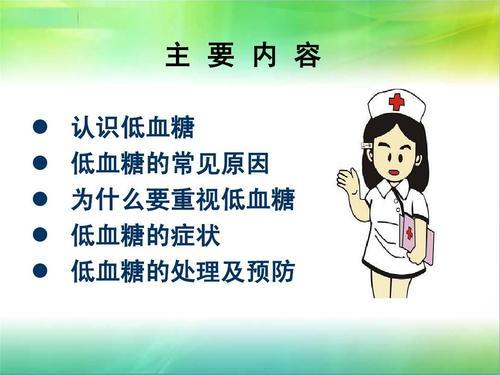How to fight diabetes?
How to fight diabetes?
Can diabetes be prevented?
There is no cure for diabetes, but diabetes can indeed be prevented. For people who are prone to diabetes, especially those with a family history of diabetes and who are obese, they should have their blood sugar checked or have a glucose tolerance test done on a regular basis. Timely detection of changes in blood sugar and timely treatment.
When the blood sugar is normal, one should change the incorrect lifestyle, strengthen diet control, insist on physical exercise, avoid obesity especially abdominal obesity, drink less alcohol and do not smoke. For obese people should try to lose weight. Scientific research shows that the occurrence of diabetes can be completely reduced by the above measures. We should also strengthen the diabetes education, so that the knowledge of diabetes and its prevention means household, everyone knows, so that all the people mobilized to fight against diabetes.
In addition, patients who have been diagnosed with diabetes should be treated aggressively and correctly to prevent various acute and chronic complications. For patients who have already developed diabetic complications, intensive treatment is needed to minimize the rate of disability and premature death caused by diabetic complications.
# Quiz Challenge #
{!-- PGC_VIDEO:{'thumb_height': 368, 'vid': 'v020169f0000bs7s36vmqp7t3uac117g', 'thumb_width': 640, 'vposter': 'https://p3-sign.toutiaoimg.com/tos-cn-p-0000/ee73110f64c7451988017996730177e4~noop.image?x-expires=1956842700&x-signature=gRZvYn4nC8mmZex85IS9KBTzuFY%3D', 'vu': 'v020169f0000bs7s36vmqp7t3uac117g', 'duration': 261.033, 'thumb_url': 'tos-cn-p-0000/ee73110f64c7451988017996730177e4', 'thumb_uri': 'tos-cn-p-0000/ee73110f64c7451988017996730177e4', 'video_size': {'high': {'duration': 261.033, 'h': 368, 'w': 640}, 'ultra': {'duration': 261.033, 'h': 368, 'w': 640}, 'normal': {'duration': 261.033, 'h': 368, 'w': 640}}} --}
There are many risk factors for diabetes mellitus, such as family history of diabetes mellitus, poor dietary habits, reduced physical activity, obesity, heavy alcohol consumption, mental stress, etc . Preventive measures: (1) Prevent and correct obesity. (2) Avoid high-fat diet. (3) Diet to ensure a reasonable weight and the needs of work and life. Food composition is reasonable, carbohydrates to non-refined, rich in soluble vitamins is good, accounting for 50% to 65% of the total calories of food, fat accounted for 15% to 20% of the total calories of food (polyunsaturated fatty acids and saturated fatty acids ratio of more than 1.5), protein accounted for 10% to 15% of the total calories of food. Eat more vegetables. (4) Increase physical activity and participate in physical exercise. (5) Avoid or use less drugs that are unfavorable to sugar metabolism. (6) Actively detect and treat hypertension, hyperlipidemia and coronary heart disease. (7) Abandon bad habits such as smoking and drinking. (8) Regular health checkups for middle-aged and elderly people, in addition to routine fasting blood glucose, should pay attention to the 2-hour postprandial blood glucose measurement Early symptoms: (1) Mouth: dry mouth, thirst, drinking a lot of water, petechiae, petechiae, oedema, swollen and painful gums, tooth buckling pain, or burning sensation in the mouth; (2) Weight: slow weight loss, and there is no obvious causative factor; (3) Physical strength: fatigue, and often feel hungry, sweating, fatigue, palpitations, trembling, hypoglycemia; (4) urine; frequent urination and excessive urination in males; (5) eyelids: yellow flat neoplasm (maculoma) growing under the eyelids; (6) skin: prolonged ulcers on the lower limbs and feet; or recurrent skin and vulvar infections; skin abrasion or scratches that do not heal easily, or recurrent glans, vulvar inflammation, and vaginitis; (7) blood vessels: arteriosclerosis, hypertension, coronary heart disease; (8) Reproduction: women who have had multiple miscarriages, gestational poisoning, excessive amniotic fluid, or delivery of a huge fetus
Diabetes is a disease of wealth and heredity, and having diabetes can lead to other bad diseases, prevention seems to be very important, you can pay attention to the following aspects in your daily life:
- Diabetes can be prevented with a regular and balanced diet.Eating fewer sweets, for example, is also known to prevent diabetes.
- Keep your weight in a healthy range. Because obesity can easily lead to diabetes, it is important to lose weight when you are found to be obese.
- Get enough sleep every day.. Poor and inadequate sleep can also cause diabetes.
- To learn to combine work and leisure in work and life. This will also be effective in preventing diabetes.
- Eat less high-fat foods and more fresh vegetables in your regular diet.For example, eat less fatty meat and fried foods.
- Develop a love of exercise.Exercise prevents obesity and can regulate the body's indicators within normal limits.
- Have regular medical checkups, do fasting blood sugar tests, and avoid foods high in cholesterol, etc.. If you are found to have diabetes be active in taking medication for it.
The first thing to do to combat diabetes is toEarly detection, diagnosis and treatment.. It is especially important for people at high risk for diabetes:
1.Age ≥ 40 years;2.History of pre-diabetes;3.Overweight (BMI ≥24kg/m2) or obese (BMI ≥28kg/m2) and/or centrally obese, waist circumference ≥90cm for men and ≥85cm for women);4,Meditation Lifestyle;5,Family history of type 2 diabetes in first-degree relatives, etc;6.Women with a history of gestational diabetes, etc.12 scenariosThe population is the one that needs to focus on their personal blood sugar.
On the one hand, regular blood sugar checksThe best test is to check both the fasting blood glucose value and the blood glucose value after 2h OGTT. This can avoid missed diagnosis and provide accurate judgment for you to accurately grasp your own blood glucose level and treat accordingly.The other side of the coin is to have a lifestyleThe adjustment of a balanced diet, reasonable exercise and other to good habits to try to cultivate good.
For pre-diabetesand diabetics can undergo comprehensive management to reverse diabetes, starting with weight and lifestyle management, which can be realizedReversal of diabetes. This requires establishing a sensible diet and a moderate and appropriate exercise regimen, and maintaining a balanced mood. Clinical practice at the Stanley Diabetes Center has proven that once patients receive comprehensive diabetes management, there is a big improvement in blood glucose control. Under the guidance and supervision of the integrated diabetes management team, it is possible to stop taking medication for more than six months and still keep blood sugar within the normal range, and complications can be prevented or delayed. It is arguably the best way to treat diabetes and the cure for diabetes control.
This issue consists of two questions, one is how diabetes can be prevented and the other is how it can be cured.
First, how to prevent: first of all, we should have good living habits, balanced nutrition, diet should not be too full, weight control, control the intake of carbohydrates; appropriate exercise, necessary physical exercise. Secondly, we should eat more fruits and vegetables and other light diet, avoid eating greasy and spicy food, control staple food. Third age more than 45 years old obese people should often check the blood sugar indicators, found the first signs, timely control.
Secondly, the treatment: once diagnosed with diabetes, there is no need to be too nervous, do not have psychological pressure, under the guidance of a professional doctor to use medication. Do not self-medicate indiscriminately, so as not to cause bad after.
Third, complications: poorly controlled or late diabetes can cause a range of complications, such as decreased immunity, retinal damage coins and hypoglycemia.
Diabetes cannot be cured at this time, only controlled.Stabilizing blood sugar in diabetics is not something that can be controlled by exercising all the time; there is more to everything than meets the eye, and hypoglycemia is a much greater risk than hyperglycemia.
Diabetes can be controlled through a combination of self-factors, diet, exercise combined with glucose-lowering medications, with diet being the top priority.As a nurse who has been working in the clinic for many years, many diabetic patients do not have good control of their blood glucose because they do not know how to grasp the principles of diet, for example: they want to control the calories, but they do not know how to calculate them.
At present, the prevalence of diabetes in China has shown a rapid increase in the trend of diabetes has now become a serious impact on the physical and mental health of the country's people, one of the chronic non-communicable diseases, and many people on the diet of diabetes there are misunderstandings, such as not dare to eat fish, shrimp and meat, not dare to eat staple foods, not dare to eat fruits and so on.
The 13th National Conference on Nutritional Sciences of the Chinese Society of Nutrition in 2017 released the Chinese Dietary Guidelines for Diabetes. The guidelines provide 8 practical dietary recommendations for Chinese diabetic patients, so how should these recommendations be interpreted?
Recommendation One
Eat and move in a balanced way, use medication wisely, control blood sugar, and achieve or maintain a healthy weight.
Expert interpretation: 1. control waist circumference to prevent abdominal obesity, men's waist circumference does not exceed 90 cm, women's waist circumference does not exceed 85 cm; 2. reasonable diet to prevent malnutrition, adult BMI should be between 18.5 to 23.9 kg/m2; 3. regular exercise, mainly aerobic exercise, at least three times a week, each time not less than 20 minutes.
Recommended 2
Staple foods are rationed and combined with coarse and fine, with whole grains and legumes accounting for 1/3 of the total.

Expert's interpretation: 1. Staple food should be rationed and the amount of intake varies from person to person; 2. Choose low Glycemic Index (GI) staple food, and whole grains and legumes should account for 1/3 of the intake of staple food.
Recommendation 3
Eat plenty of vegetables, fruits in moderation, and a variety of types and colors.
Expert's interpretation: 1. Increase the intake of fresh vegetables to reduce dietary GI, it is recommended that there are vegetables in every meal; 2. 300-500 grams of vegetable intake per day, more than 1/2 of dark vegetables, of which no less than 70% are green leafy vegetables; 3. Choose low-GI fruits in moderation between meals.
Recommendation 4
Eat fish and poultry often, eggs and livestock in moderation, and limit processed meats.
Experts: 1. Eat fish, shrimp, crab, shellfish and poultry, moderate amount of animal meat, and reduce the intake of fatty meat; 2. No more than 4 eggs per week, or 1 egg every 2 days, and do not discard the yolk; 3. Limit the intake of processed meat products such as pickled, baked, and smoked products.
Recommendation 5
Milk and beans every day, snacks and meals with reasonable choices.

Expert advice: 1. Ensure a daily intake of 300 grams of liquid milk or an equivalent amount of dairy products; 2. Emphasize the intake of soy and its products; and choose a small amount of nuts for snacks and meals.
Recommendation 6
Eat a light diet, drink plenty of water, and limit alcohol consumption.
Expert interpretation: 1. Cooking attention to less oil and salt, adults daily cooking oil 25-30 grams, the amount of salt does not exceed 6 grams; 2. Recommended drinking water, adults drink 1500-1700 ml per day; 3. Beverages can choose light tea and coffee; 4. Do not recommend people with diabetes to drink alcohol.
Recommendation 7
Timing and rationing, chewing slowly and paying attention to the order of meals.

Expert's explanation: 1. regular meals, the arrangement of meals depends on the condition; 2. control the speed of meals, 15-20 minutes in the morning, 30 minutes for lunch and dinner; 3. chewing and swallowing slowly, it is best to chew each mouthful of food 25-30 times; 4. change the order of meals, eat vegetables first, then meat, and finally eat the main food.
Recommendation 8
Focus on self-management and receive regular individualized nutritional guidance.
Expert interpretation: 1. focus on six aspects of self-management including dietary control, regular exercise, medication as prescribed by the doctor, monitoring of blood glucose, foot care, and prevention and management of high and low blood glucose; 2. receive individualized nutritional guidance from dietitians on a regular basis, with a frequency of at least four times a year.
A balanced diet.
Rationalizing the use of medication.
Exercise in moderation.
Pleasant mood.

Prevention of diabetes is in fact very important, now with the improvement of living conditions, there are many people living conditions are too good, is the formation of diabetes, so the prevention of diabetes, in the diet is the most critical, especially in the family property of diabetic patients with a history of people, then in the control of the diet in order to prevent diabetes with appropriate exercise, so that the most critical, we usually have to develop a good dietary habits We usually have to develop a good dietary habits, do not overeat, to take a low-salt, low-fat, low-sugar dietary structure principles, and then every day, it is best to say that 3-5 times a week of aerobic exercise 1 time 20 to 30 minutes or so, so that a comprehensive diet and exercise exercise, is conducive to the prevention of diabetes prevention!
There are several specific approaches to diabetes:
First, adhere to physical exercise, active physical activity, help to maintain blood sugar levels, can reduce the risk of diabetes, but also can enhance the heart muscle bone regeneration ability, improve blood circulation, strengthen the muscles and maintain the flexibility of the joints.
Secondly, healthy diet, keep healthy, diet for the prevention of diabetes, very important role in reducing the risk of type 2 diabetes and heart disease.
Third, maintain a healthy weight or obesity significantly increase the risk of type 2 diabetes, reduce weight can reduce the risk of diabetes, there are some patients in the early onset of diabetes has no obvious clinical symptoms, if there is a family history of diabetes, obesity, lack of exercise, or have unhealthy eating habits of high-risk groups, in the normal course of time must be regular blood glucose testing in hospitals, can be early prevention of diabetes to avoid complications. You can prevent diabetes early and avoid complications.



If you want to prevent diabetes, you should control your diet, do not eat greasy and spicy food, exercise more, test the change of blood glucose every day, develop good habits, do not overeat, and prevent diabetes through diet and exercise; high-risk groups should be screened early.
Walking 30 minutes a day: in all sports, walking applies to the widest range of people, is not subject to site and time constraints, is safer, the pace and speed can be adjusted by yourself, and is less damaging to the joints.
Change bad dietary habits, rationalize the dietary structure, and control the intake of protein, fat, and sugar.
Quit smoking and drinking: Quit smoking and drinking and other bad habits. Alcohol and tobacco are extremely harmful to human body, not only will directly cause cancer and other diseases that jeopardize human health, but also make the human body resistance and immunity decline, giving diabetes a chance to take advantage of, so it is very important to quit smoking and alcohol.

Get enough rest: sleep between 6-8 hours. Sleeping more or less increases the likelihood of diabetes.
Choose high-fiber foods: Studies have proven that fiber promotes intestinal peristalsis, discharges residual metabolic waste, and does a good job of cleaning out the intestines.
Reduce pressure: In a high-pressure state, the body will activate the self-protection mechanism, breathing faster, heartbeat acceleration, blood sugar rise and other phenomena, so usually learn to regulate the mood and release the pressure.

I. Genetic factors
It is universally recognized that diabetes mellitus is a hereditary disease, and genetic studies have shown that the incidence of diabetes mellitus is significantly different between pedigree and non-pedigree relatives, with the former being five times higher than the latter. The importance of genetic factors in the etiology of diabetes mellitus type I is 50%, while in diabetes mellitus type II it is more than 90%, so the genetic factors causing diabetes mellitus type II are significantly higher than those causing diabetes mellitus type I.

II. Mental factors
In the last decade, Chinese and foreign scholars have confirmed the role of mental factors in the occurrence and development of diabetes mellitus, believing that the accompanying mental tension, emotional excitement and various stress states will cause a large amount of secretion of blood glucose-raising hormones, such as growth hormone, norepinephrine, pancreatic glucagon, and adrenocorticotropic hormone.

III. Obesity factors
Currently believe that obesity is an important cause of diabetes, about 60% -80% of adult diabetic patients before the onset of diabetes are obese, the degree of obesity and the incidence of diabetes is positively proportional to the basic research materials show that: with age, physical activity is gradually reduced, the proportion of human body muscle and fat is also changing. Since the age of 25 to 75 years old, muscle tissue gradually decreased from 47% of body weight to 36%, and fat from 20% to 36%, this system of the elderly, especially obese fat elderly in diabetes increased significantly one of the main reasons.

IV. Chronic overfeeding
Excessive diet without moderation and over-nutrition overburden the insulin β-cells that are already potentially low-functioning and induce diabetes mellitus. Nowadays, the concept of "the more affluent the life, the fuller the body, the more diabetes" has been formed both at home and abroad.
In recent years, as the research and understanding of diabetes mellitus continue to deepen, the etiology and pathogenesis of diabetes mellitus have gained new insights by controlling from multiple perspectives, such as molecular biology, electron microscopy ultrastructure, immunology, and physiological biochemistry.

V. Infections
Juvenile-onset diabetes is significantly associated with viral infections; the infection itself does not induce diabetes, but only makes invisible diabetes more visible.
VI. Pregnancy
Experts have found that the number of pregnancies is related to the development of diabetes, and that multiple pregnancies tend to weaken genetic factors to induce diabetes.
VII. Genetic factors
Current science recognizes that diabetes is caused by damage to several genes: type I diabetes - damage to the HLA-D gene on the short arm of the sixth pair of human chromosomes; type II diabetes - damage to the insulin gene, the insulin receptor gene, the glucagolysin gene, and the mitochondrial gene damage. In short, regardless of the type of diabetes, whether it develops due to genetic predisposition, environmental factors, or viral infections, it is ultimately due to genetic damage. In other words, diabetes is a genetic disease.
The above is the actual answer of Li talk about the world, I hope you can prevent the occurrence of diabetes, try to eat less sweets, occasionally eat a little bit is okay, continue to pay attention to Li, every day to give you a health popularization.
This question and answer are from the site users, does not represent the position of the site, such as infringement, please contact the administrator to delete.